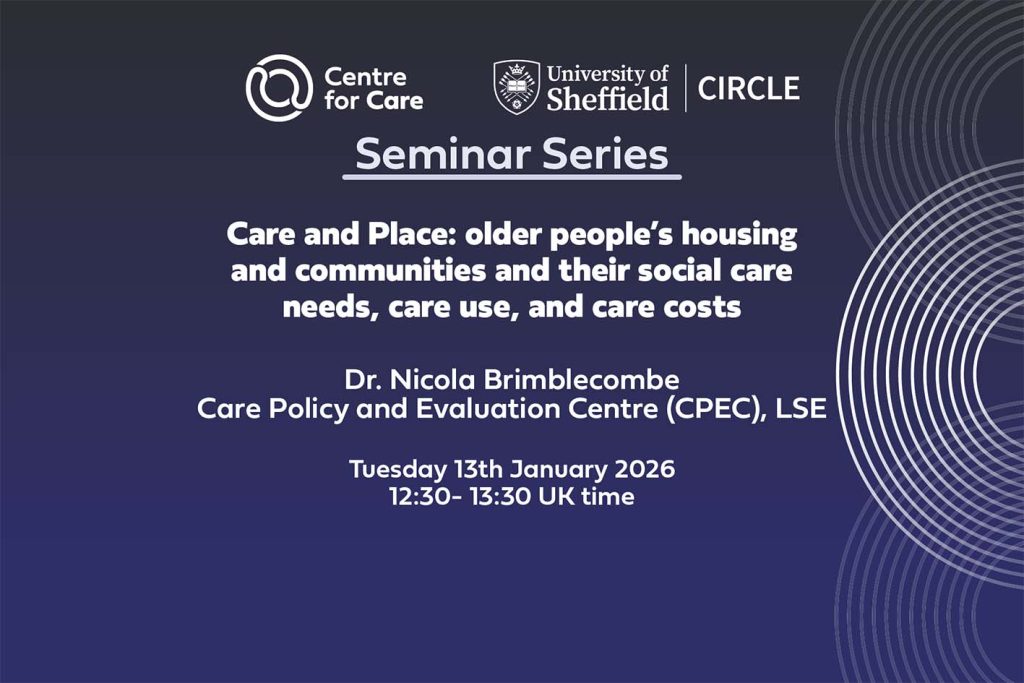Are robots the solution to Japan’s care crisis?
Date: Tuesday 18th April 2023
Press play below to watch a recording of the event:
About the event
Abstract
Like many other post-industrial economies, Japan is in the grip of a deepening care crisis. The care needs of older people are growing, and there do not seem to be enough caregivers available to address them. Robots have been repeatedly presented as a high-tech solution to this problem by elements of the Japanese government and industry, and large sums of money have been invested in their development and implementation over the past decade.
This talk draws on ethnographic fieldwork undertaken in Japan since 2016 at a national research institute working on the world’s largest care robot project, and at an elder care home introducing three different care robots. It examines how such robots are being developed and used, how they serve to reconfigure aspects of care work, and how they might transform the industry in the future.
When we cut through the stereotypes, myths, and techno-utopian hype about Japan’s relationship with robots and consider what ideological concerns they embody as well as their actual functionalities, the proposed robotic solution to the care crisis raises fundamental questions about the relationship between productive and reproductive labour under neoliberal capitalism, while revealing alternative possibilities for caring futures.
About the presenter
Dr James Wright is Research Associate at The Alan Turing Institute, the UK’s national institute for data science and AI. He received his PhD in anthropology and science and technology studies from the University of Hong Kong, China in 2018. His research interests include the development and use of robots, AI and other digital technologies for elder care; his current project, PATH-AI, focuses on AI ethics and governance in the UK and Japan. His first book, entitled Robots Won’t Save Japan: An Ethnography of Eldercare Automation, was published in early 2023 by Cornell University Press, and will be the focus of this session.
Expert-led Technology and Care sessions
Technology is increasingly relevant to all aspects of the care ecosystem. The Centre for Care team researching Digital Care aims to highlight the relevance of developments in technologies and their evolving use in care for all work across the Centre. We also plan inclusive sessions, codesigned and delivered with partners, involving our entire team and open to relevant stakeholders. Beyond their role in fostering Centre integration, the sessions will also build insight and capacity in the role of technologies. The TSA (Technology-Enabled Care Services Association), whose membership includes technology designers, manufacturers and providers as well as local bodies with statutory care responsibilities, has extensive experience of engaging stakeholders and driving debate in the care sector; this collaboration aims to stimulate new thinking/project development, and make an outward-facing, inclusive contribution producing policy papers and accessible, thought-provoking materials for public and care sector audiences.
More events

We are delighted to virtually welcome Professor Shereen Hussein and Dr. Erika Kispeter from the London School of Hygiene and Tropical Medicine to present for us on 24th March 2026.
Read More about Seminar: From National Policy to Local Practice: Drivers, Tensions and Future Scenarios for UK Adult Social Care Workforce Change
We are delighted to virtually welcome Professor Jennifer M. Piscopo, from the Royal Holloway University of London, to present ‘Care as a Public Good and a Human Right: Latin America’s Transformative Care Agenda’ on Tuesday 17th February 2026
Read More about Seminar: Care as a Public Good and a Human Right: Latin America’s Transformative Care Agenda
Seminar recording now available! We welcomed Professor Jerry Tew and Dr. Philip Kinghorn from the University of Birmingham, to present ‘Family and Group Conferencing for Adults – what it can offer for informal carers’ on Tuesday 27th January 2026.
Read More about Seminar: Family and Group Conferencing for Adults – what it can offer for informal carers
Seminar recording now available! We welcomed Dr. Nicola Brimblecombe to present ‘Care and Place: older people’s housing and communities and their social care needs, care use, and care costs’ on Tuesday 13th January 2026.
Read More about Seminar: Care and Place: older people’s housing and communities and their social care needs, care use, and care costs
